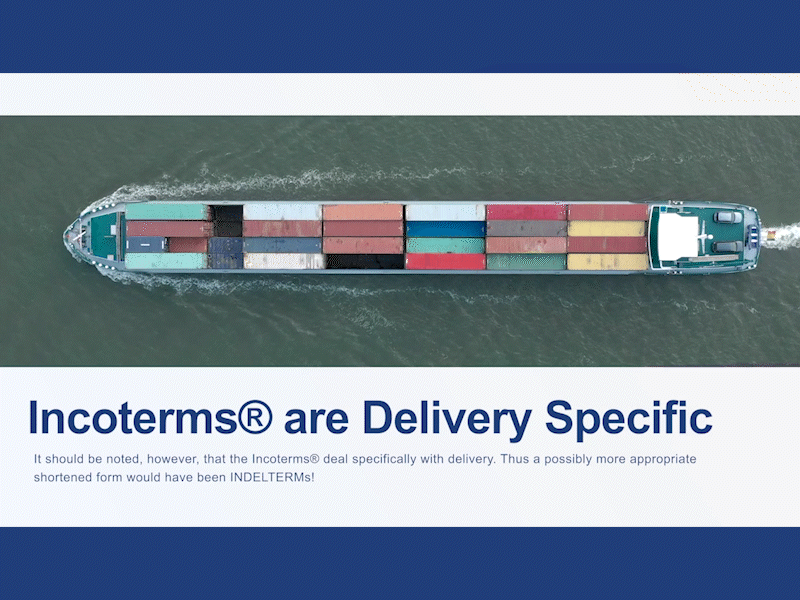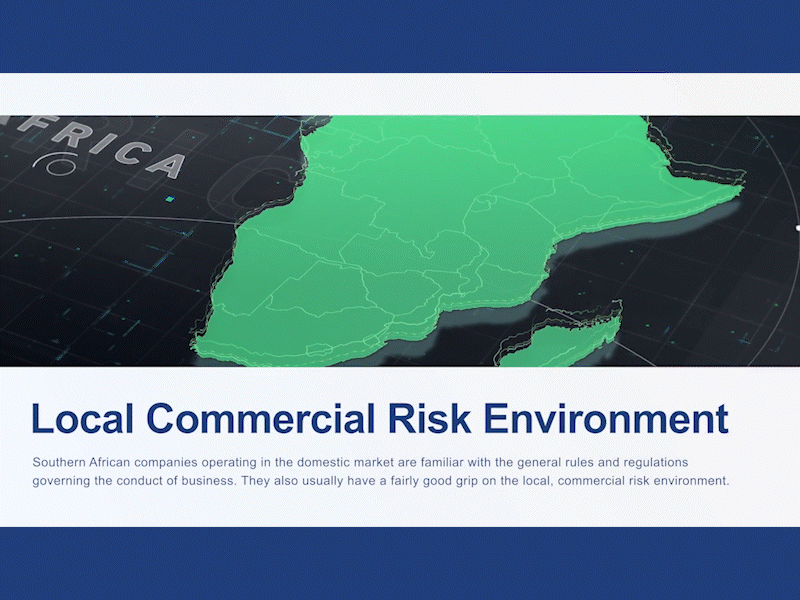Course 3: International Cargo Movement
Module 1: Preparing International Trade Documentation
Module Rating
Module 1 of 3
~35 minutes
3 Topics
Multiple Assessments

This is the first free module of a comprehensive course covering international cargo movement. In this module we will be exploring how to identify the various categories into which trade-related documents belong. We will be covering, with the use of examples, the critical role played by documentation in international cargo movement. We also explain the purpose of specific documents. To round off the module we will check a set of documents for accuracy, and compliance with both the terms of sales and regulatory requirements. Click the icon below to get started on this free module.
Who is this Module for?
Businesses & Organisations
Looking to potentially expand their products into foreign markets
Governmental Organisations
That help facilitate or consult businesses on international trade
Entrepreneurs & Individuals
looking to start trading in foreign markets
Trade Consultants
Looking to stay up-to-date with most current export information
Individuals & Students
Who want to learn more about the export landscape, particularly in the Southern African region
This module serves as a foundational starting point for any individual or business looking to break into international trade. It starts with the most basic of questions, “what are the various categories of trade related documents and where do they belong?” This is an important starting point as it sets the stage for the next topic which delves into the critical role these documents play within international cargo movement. Find out the purpose of each document and their application. We also look at how to complete a set of documents accurately to ensure your documentation is completely compliant.
No cargo can move without the presence of documents. The movement of goods from one location to another involves a multitude of variables, and proper documentation is essential to ensure a smooth and efficient process. Depending on factors such as the chosen method of transport, the nature of the goods being transported, the intended destination, the method of payment, and the specific requirements of the importer, the number and types of documents required can vary greatly. While some shipments may only necessitate a handful of documents, others may require an extensive collection filling an entire briefcase.
To understand the importance of documentation in cargo movement, it is helpful to categorise the various types of documents involved. These categories include transport documents, which provide evidence of the contract of carriage and include bills of lading, air waybills, or road consignment notes. Instruction documents outline specific instructions regarding the handling, storage, or delivery of the goods. Insurance documents provide proof of insurance coverage for the cargo during transit. Customs documents, such as import or export declarations, are required for compliance with customs regulations. Exchange control documents may be necessary in cases where currency regulations apply. Harbour revenue documents come into play when goods are transported by sea and involve payments related to the use of port facilities. Lastly, importing countries often require additional specific documents to meet their regulatory requirements.
The importance of documentation in cargo movement cannot be overstated. It ensures that the necessary information is provided and verified, allowing for the smooth flow of goods from origin to destination. Without the proper documents, cargo movement would be hindered, resulting in delays, legal issues, and potential financial losses. Therefore, understanding and fulfilling the document requirements for each shipment is crucial for all parties involved in the transportation process.
Understanding the export landscape can be a daunting challenge, for many the starting point is unclear and the way forward clouded by misinformation and dated sources. With this course, we break down and simplify the most basic and essential topics for international cargo movement with the most up-to-date and relevant information. Presented in high-definition video, with each topic ending in assessment to ensure the lesson is properly retained.
This free module is part of a comprehensive course and is the most important source of information you need to understand the export landscape. An understanding that is essential to any growing business or industry where the potential for international trade is high. Completing this free module is the first major brick in your foundational knowledge of international cargo movement and will form an essential part of your understanding of exports going forward. It is also the perfect segway into our next free module covering the packing and marking of shipments for international transit.
Topic 1: Categories of documents associated with the delivery of goods: instruction and transport documents
Topic 2: Categories of documents associated with the delivery of goods: instruction, insurance, and customs documents
Topic 3: Categories of documents associated with the delivery of goods: exchange control, harbour revenue, and importing countries’ regulatory compliance documents
This is the first module in a series of three to form a comprehensive course covering International Cargo Movement. Every course and subsequent module has been developed and curated by the International Trade Institute of Southern Africa and Trade Forward Southern Africa. The entire training course is free of charge and can be completed by individuals and organisations alike. This module and subsequent course lays an essential foundation for trade internationally. If you know anyone that would be interested, share this module with them using the link below. We would also love your feedback, so drop us a review once you have completed the module.
Export foundation training
In this module we will be exploring the categories of country development and their relevance to International Trade. We will be covering why countries trade with each other and what goods get traded. We also present a case for free trade, barriers to trade and why they matter. This module also covers the importance and impact of specific global bodies on world trade, which are essential avenues for successful exports. To round off the module we will break down the changing exports landscape through the use of regional trading blocs and relevant trade agreements.






